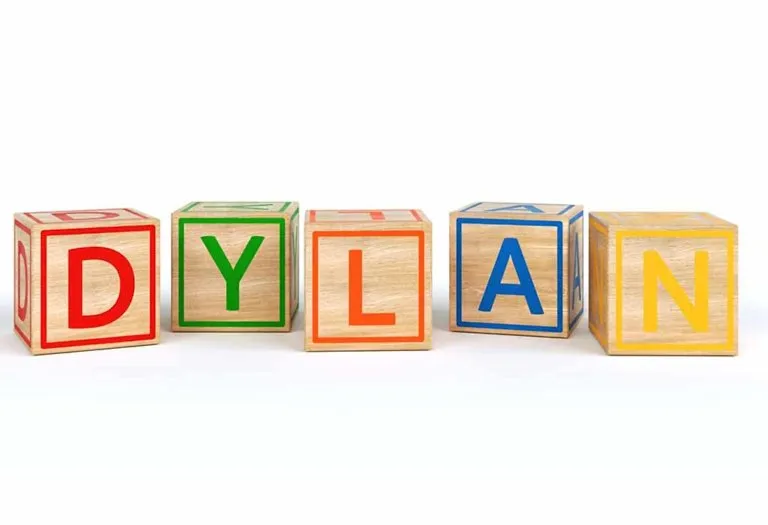100 Names That Mean Snake for Boys & Girls
When it comes to choosing a name for a child, parents often look for something more than just a pleasant sound. A name can carry layers of meaning—echoing culture, myth, strength, or even the mysteries of nature. One fascinating theme that has intrigued parents around the world is baby names that mean snake. While snakes can sometimes be misunderstood, they’ve long been symbols of transformation, wisdom, healing, and resilience across cultures.
So, it’s no surprise that names inspired by them can feel both powerful and unique. If you’ve ever thought about giving your child a name that carries an unusual yet meaningful connection to the natural world, snake-inspired names offer an incredible range of options—mystical, bold, and unforgettable.
Boy Names That Mean Snake
If you are searching for strong and meaningful male snake names, then this list of boy snake names will give you plenty of inspiration. Each carries a story tied to myth, culture, or nature itself.
- Abraxas – An ancient mystical name linked to serpent imagery and protective spiritual power.
- Ahi – Sanskrit name from Vedic hymns meaning “snake” or “serpent.”
- Anguís – Latin poetic word meaning “snake,” tied to mystery and transformation.
- Apep – Egyptian serpent deity embodying chaos, darkness, and eternal struggle against Ra.
- Apophis – Greek form of Apep, serpent deity of darkness and chaos.
- Asmodeus – Mythological figure tied to cunning and serpentine energy in folklore.
- Basilisk – Legendary serpent king feared for its deadly gaze and power.
- Belus – Babylonian myth name linked to serpents, power, and guardianship.
- Chryso – Shortened from Chrysopelea, the golden flying serpent, symbolising agility and uniqueness.
- Draco – Latin name meaning “dragon” or “serpent,” symbolising guardianship and strength.
- Enhydros – Greek name meaning “water serpent,” symbolising adaptability and flowing energy.
- Fafnir – Norse figure cursed into a serpent-like dragon, symbolising greed and destruction.
- Gorgon – Greek myth’s snake-haired beings, symbols of fearsome strength and protection.
- Hydra – Multi-headed serpent from Greek mythology, symbolising resilience and rebirth.
- Jörmungandr – Great Midgard Serpent of Norse myth, destined to bring about Ragnarok.
- Kaliya – Many-hooded serpent subdued by Krishna, representing arrogance and redemption.
- Kundali – Sanskrit name meaning “coiled serpent,” associated with spiritual awakening.
- Leviathan – Biblical sea serpent name symbolising immense chaos and primal power.
- Naga – A Sanskrit word for “serpent,” representing divine beings in Hindu and Buddhist traditions.
- Nagasena – Buddhist name meaning “army of serpents,” symbolising wisdom and guidance.
- Nagendra – Sanskrit name meaning “lord of serpents,” symbolising protection and cosmic balance.
- Nahash – Hebrew name meaning “serpent,” tied to cunning and mystery.
- Nidhogg – Norse serpent gnawing at Yggdrasil’s roots, symbolising destruction and rebirth.
- Ningishzida – Mesopotamian god depicted with serpents, tied to fertility and the underworld.
- Ophion – Greek mythological serpent representing ancient cosmic power before the Titans.
- Ophiuchus – Constellation name meaning “serpent bearer,” tied to healing and hidden knowledge.
- Ormr – Old Norse word meaning “serpent” or “snake.”
- Phanes – Greek primordial deity depicted with serpents, representing cosmic creation.
- Python – Giant serpent from Greek legend, slain by Apollo at Delphi.
- Quetzalcoatl – Feathered serpent god of Aztec culture, representing wisdom, creativity, and renewal.
- Serpens – Latin name for “serpent,” also a constellation linked to mysticism and change.
- Sesha – Variation of Shesha, representing the cosmic serpent sustaining the universe.
- Shesha – Endless cosmic serpent from Hindu mythology upon whom Lord Vishnu rests.
- Tanith – Phoenician goddess linked with serpentine fertility symbols and protection.
- Tannin – Hebrew name for “sea serpent” or “dragon.”
- Typhon – Monstrous Greek deity with serpent features, father of many legendary beasts.
- Uraeus – Egyptian cobra emblem on pharaohs’ crowns, symbolising divine authority.
- Vasuki – Great serpent king from Hindu mythology, often wrapped around Shiva’s neck.
- Wadjet – Egyptian serpent goddess symbolising protection and guardianship.
- Yurlungur – Aboriginal serpent deity tied to creation, fertility, and the cycles of life.
Girl Names That Mean Snake
If you are searching for graceful yet strong girl snake names, then this list of female snake names offers many inspiring choices. These names carry history, myth, and natural beauty.
- Ahiya – A feminine take on Ahi, a Sanskrit word for serpent in Vedic hymns.
- Anguina – From the Latin “anguis,” meaning serpent, symbolising mystery and transformation.
- Basilia – A feminine variation of Basilisk, carrying associations of regal power and serpentine mystique.
- Basilissa – Feminine form of Basilisk, the legendary serpent, symbolising both danger and awe.
- Dracina – A feminine version of Draco, symbolising serpent-like power and guardianship.
- Dracinae – Derived from dragon and serpent roots, representing guardianship, strength, and mysticism.
- Echidna – A Greek mythological creature, half woman and half serpent, considered the mother of monsters.
- Hydraia – Inspired by the Hydra of Greek myth, symbolising challenges, resilience, and rebirth.
- Jormina – A feminine form inspired by Jörmungandr, the Norse world serpent, symbolising destiny.
- Kaliyaani – Inspired by Kaliya, the many-hooded serpent from Hindu myth, subdued by Krishna.
- Lamia – A name from Greek legend tied to a serpent woman, symbolising mystery and hidden power.
- Lamira – Inspired by Lamia, softened into a graceful, feminine form symbolising mystery and allure.
- Lilithia – Though often linked to folklore, Lilith has associations with serpentine qualities of temptation and power.
- Medusa – A Greek name for the snake-haired Gorgon, symbolising mystery, strength, and fierce independence.
- Nagaia – A name inspired by the Sanskrit “naga,” representing divine serpent women of Hindu and Buddhist traditions.
- Nagini – A Sanskrit name meaning “female serpent,” known from Hindu stories and as a symbol of mysticism and transformation.
- Naginia – A softer version of Nagini, symbolising serpentine grace and protective energy.
- Naginya – A softer form of Nagini, linked to serpent maidens in myth and folklore.
- Nidhra – A feminine creation inspired by Nidhogg, the Norse serpent tied to cycles of life and death.
- Ophiane – A Greek-rooted feminine name inspired by serpents, tied to hidden knowledge.
- Ophiara – A rare name linked to serpents, carrying associations of mystery, magic, and beauty.
- Ophidia – From the Greek word “ophis,” meaning serpent, suggesting transformation and wisdom.
- Ophidra – A rare feminine name with Greek roots tied to serpents and spiritual transformation.
- Ophielle – A feminine name from the Greek root “ophi,” meaning serpent, tied to mysticism.
- Ophira – A name tied to serpentine roots and also meaning “gold” in Hebrew, suggesting beauty and wisdom.
- Quetza – A feminine twist on Quetzalcoatl, the feathered serpent deity, symbolising wisdom and creativity.
- Seraphis – Though angelic in sound, this variation ties serpent imagery with mystical transformation.
- Serpa – A short, modern name derived from serpent, simple yet powerful.
- Serpentia – A direct feminine name inspired by serpents, carrying elegance, mystery, and resilience.
- Serpentina – A Latin-rooted name meaning “little serpent,” evoking grace, elegance, and strength.
- Serpilia – A lyrical name suggesting serpent-like grace and flowing elegance.
- Serpina – A soft and lyrical name meaning “little serpent,” symbolising mystery and strength.
- Seshani – A feminine form of Shesha, the great serpent supporting the universe in Hindu belief.
- Tanithia – Derived from the Phoenician goddess Tanith, often linked with serpentine symbols of protection and fertility.
- Tannira – A feminine twist on Tannin, the Hebrew sea serpent, symbolising primal strength.
- Uraessa – A feminine take on Uraeus, the Egyptian cobra symbol of protection and power.
- Viperina – A modern creation linked to vipers, symbolising sharpness, intuition, and independence.
- Vritraani – Inspired by Vritra, a serpent from Vedic myths, symbolising strength and challenges overcome.
- Wadjetta – A feminine form of Wadjet, the Egyptian cobra goddess of royal protection.
- Yurlina – A feminine creation from Yurlungur, the Aboriginal rainbow serpent, symbolising fertility and life cycles.
Gender Neutral Names That Mean Snake
If you are searching for meaningful unisex snake names that balance strength and beauty, this list has options for every taste. Whether you want the best name for tradition or a cute name that feels modern, here are some unique ideas.
- Ahnura – A soft variation inspired by serpent deities, symbolising cycles of life, balance, and renewal.
- Basilan – Derived from Basilisk, the serpent king, softened into a neutral name symbolising awe and strength.
- Draconis – A Latin name tied to dragon-serpent imagery, representing guardianship, courage, and mystery.
- Enhydra – From the Greek word for water serpent, symbolising flow, adaptability, and deep strength.
- Hydran – Inspired by the Hydra of Greek myth, symbolising resilience, adaptation, and regeneration.
- Nagaro – Inspired by the Sanskrit naga, meaning serpent, symbolising divinity, guardianship, and transformation.
- Nagendrai – A gender-neutral variation of Nagendra, meaning lord of serpents, symbolising cosmic balance and divine strength.
- Naginor – A blend of Nagini and serpent traditions, representing grace, mysticism, and protective energy.
- Ophalen – A modern, gentle name derived from serpent roots, symbolising mystery, transformation, and harmony.
- Ophirae – Inspired by serpent roots and the Hebrew word for gold, symbolising wisdom, rarity, and inner brilliance.
- Ophiriel – A gentle, lyrical name with serpent symbolism, suggesting mystery, beauty, and resilience.
- Ophisar – From the Greek root “ophis,” meaning serpent, tied to wisdom and spiritual mystery.
- Orphin – Derived from serpent-linked Greek roots, symbolising hidden wisdom, transformation, and creative spirit.
- Quetzel – A modern variation of Quetzalcoatl, the feathered serpent deity, symbolising knowledge, creativity, and cultural pride.
- Serpello – A modern creation rooted in serpent symbolism, carrying elegance, independence, and transformation.
- Serpian – A modern gender-neutral take on serpent symbolism, representing adaptability, grace, and change.
- Seshar – A unisex name inspired by Shesha, the endless serpent, symbolising cosmic stability and guardianship.
- Tanniel – A soft, neutral variation of Tannin, the sea serpent, representing primal strength and mystery.
- Vritraen – A gender-neutral form of Vritra, the serpent adversary of Vedic mythology, symbolising power and endurance.
- Yurlani – A gender-neutral form of Yurlungur, the Aboriginal rainbow serpent, symbolising fertility and creation.
Why Choose Snake-Inspired Names?
There are many reasons parents feel drawn to snake-themed names. Some love the depth of names inspired by snakes, while others want cool snake names or simply good snake names that feel unique and meaningful.
1. Symbol of Transformation
Snakes shed their skin and start anew, making these names perfect for families who value growth and resilience.
2. Cultural and Mythological Roots
Many traditions honor serpent deities and legends, giving these names timeless links to mythology and ancient stories.
3. Strength and Protection
Across cultures, snakes are seen as guardians or protectors, making these names symbols of safety and hidden strength.
4. Connection to Nature
Choosing a serpent name reflects respect for the natural world and the mysteries it holds.
5. Mystical and Spiritual Energy
For some, serpents represent wisdom and inner power, making these names a reminder of deeper meaning and balance.
Tips for Choosing a Snake-Themed Baby Name
Parents often look for something meaningful when naming their child. Some prefer names with snake meanings or names meaning snake, others explore names that mean serpent, and many simply want unique names that stand out.
1. Look Into Cultural Backgrounds
Explore traditions from different parts of the world to find serpent names with stories that connect to your values.
2. Consider the Symbolism
Think about what the snake represents for you—wisdom, transformation, power, or protection—and choose a name that reflects it.
3. Keep Sound and Flow in Mind
Say the name aloud a few times to hear how it pairs with your surname and everyday nicknames.
4. Research Meanings Carefully
Some serpent names have deep spiritual or mythological roots, so take time to understand their origins before deciding.
5. Balance Rarity With Usability
It’s exciting to choose a rare name, but make sure it still feels natural and easy for daily use.
6. Trust Your Instincts
At the end of the search, pick the name that feels right for you and your family’s story.
FAQs
1. Are snake-inspired names common around the world?
Snake-inspired names are not extremely common, but they do appear in many cultures. From Sanskrit traditions to Norse legends and Native stories, serpents have always held symbolic meaning.
2. Can snake names be modern and stylish?
Yes, many serpent names have a fresh and modern feel. Parents often choose them for their rare sound and strong meaning, making them both stylish and meaningful.
3. Do snake names always carry a negative meaning?
Not at all. While snakes are sometimes linked to danger, many traditions see them as symbols of wisdom, healing, and transformation.
Choosing a serpent-inspired name is about finding beauty in symbols often misunderstood. In the end, the best name is the one that feels right for your child and family.
Also Read:
Baby Names that Mean Soul, Ghost or Spirit
Baby Names That Mean Traveller or Wanderer
Names that Mean Faith for Boys and Girls
Baby Names that Mean Chaos and Trouble
Boy & Girl Names That Mean “Happy or Joy”
Boy and Girl Names that Mean Miracle or Blessings
Was This Article Helpful?
Parenting is a huge responsibility, for you as a caregiver, but also for us as a parenting content platform. We understand that and take our responsibility of creating credible content seriously. FirstCry Parenting articles are written and published only after extensive research using factually sound references to deliver quality content that is accurate, validated by experts, and completely reliable. To understand how we go about creating content that is credible, read our editorial policy here.













.svg)


















